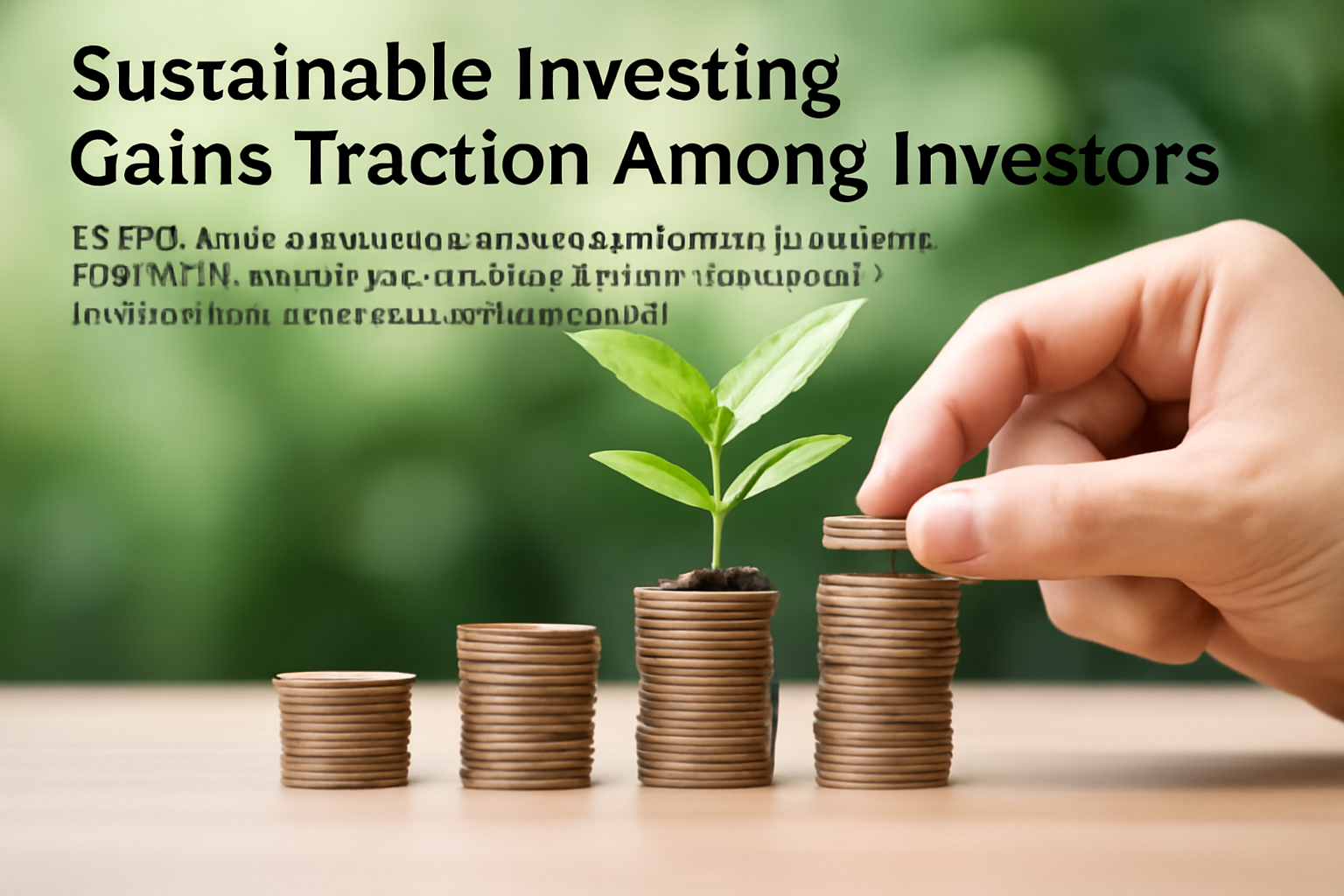Location
Mount Vernon, WA 98274
Location
Mount Vernon, WA 98274

Sustainable investing is rapidly gaining traction among investors, reflecting a growing awareness of environmental, social, and governance (ESG) factors. This article explores the driving forces behind this shift and its implications for the future of finance.
In recent years, sustainable investing has transitioned from a niche interest to a mainstream strategy that shapes financial markets. Investors are now more inclined to allocate their resources toward companies that prioritize environmental, social, and governance (ESG) criteria. This shift not only reflects changing consumer preferences but also recognizes the financial risks associated with ignoring sustainability.
According to a report by the Global Sustainable Investment Alliance, sustainable investments reached approximately $35 trillion globally in 2020, marking a 15% increase since 2018. This surge is driven by various factors, including increasing regulatory pressures and a demand for transparency in corporate practices. As more investors seek to align their portfolios with their values, the emphasis on sustainability is reshaping the investment landscape.
One significant factor contributing to this trend is the growing awareness of climate change and its economic implications. Major financial institutions, including BlackRock and Goldman Sachs, have acknowledged the necessity of integrating ESG factors into their investment strategies. In a recent statement, BlackRock’s CEO Larry Fink emphasized that companies must adapt to a changing environment or risk losing their competitive edge.
Furthermore, younger generations are leading the charge toward sustainable investing. Millennials and Gen Z investors are particularly motivated by social responsibility, often prioritizing investments that reflect their ethical beliefs. A survey by Morgan Stanley revealed that 85% of millennials are interested in sustainable investing, compared to 60% of older generations. This demographic shift is prompting financial advisors to adapt their strategies and offer sustainable investment options.
However, the transition to sustainable investing is not without challenges. Critics argue that the lack of standardized metrics for measuring ESG performance can lead to greenwashing, where companies exaggerate their sustainability efforts. As a result, investors must conduct thorough due diligence to ensure that their investments genuinely align with their values.
Looking ahead, the future of finance appears to be increasingly intertwined with sustainability. With regulatory frameworks evolving and more investors demanding transparency, companies will be under pressure to demonstrate their commitment to ESG principles. As this trend continues to gain momentum, it will be essential for investors and companies alike to navigate the complexities of sustainable investing.